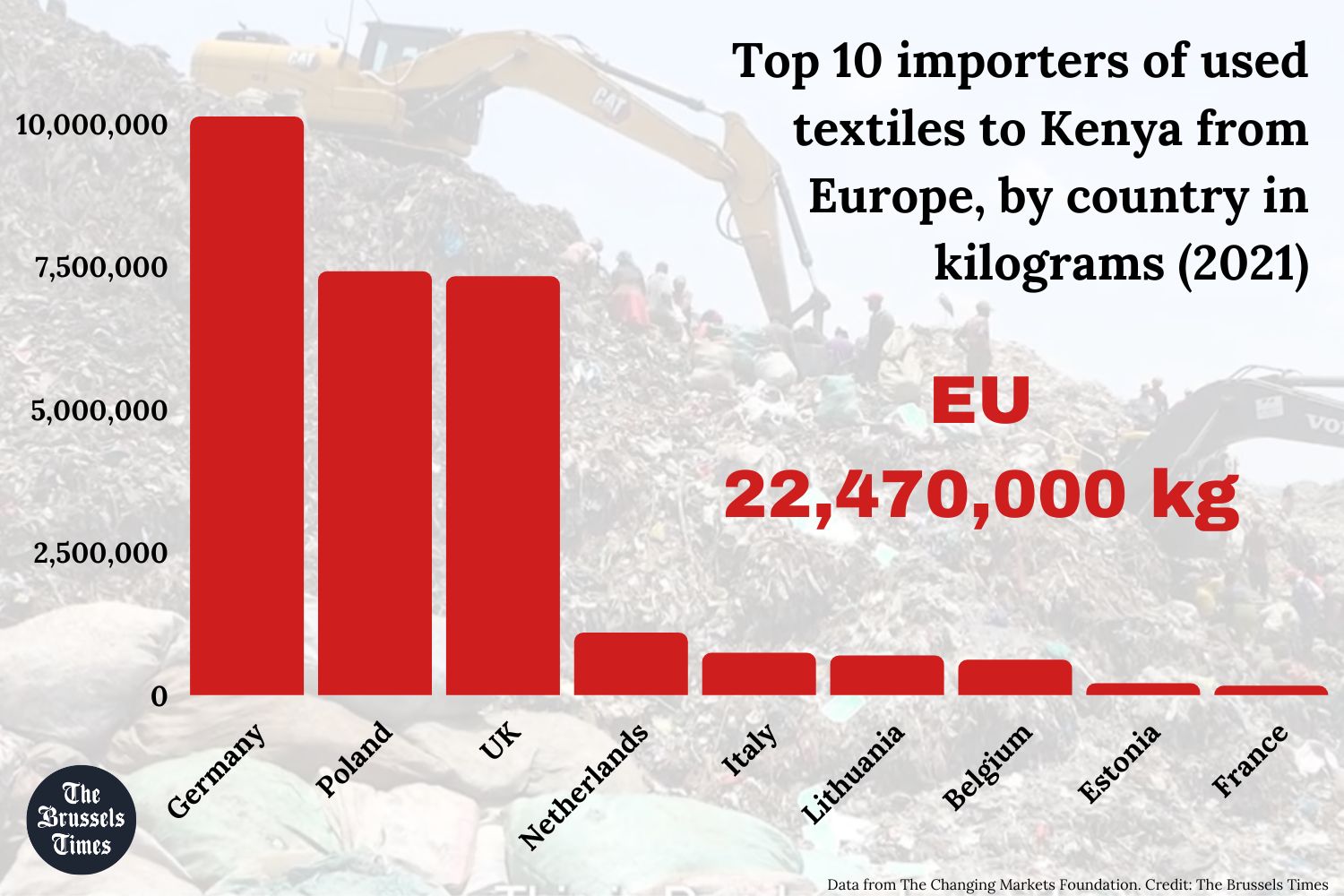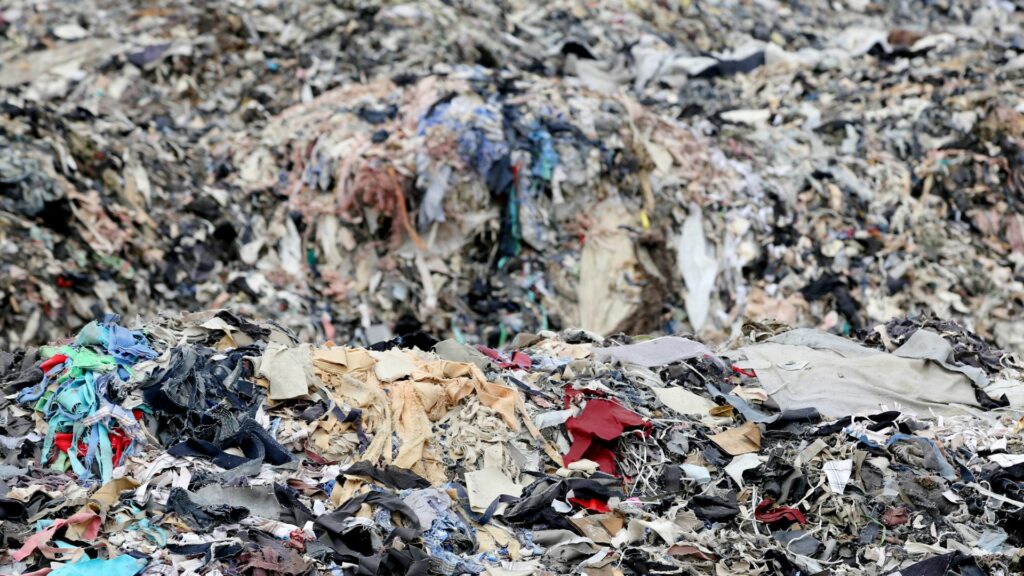A new documentary released by the Dutch NGO Changing Markets Foundation has exposed a legal loophole through which hidden plastic waste is exported to the Global South, using the situation in Kenya to illustrate the severe consequences of fast fashion.
Belgium shipped 600,000 kilograms of used clothing to Kenya in 2021, of which 50% was waste that could not be reused or sold. Of the waste, 66% contained plastic, which will not decompose and has ended up in landfill sites or to be burned as fuel. This is according to an investigation report titled "Trashion" by the Dutch NGO.
 According to 2021 customs data, Germany (41.27%), Poland (24.68%), UK (23.05%), Hungary (3.28%), Italy (2.53%), Belgium (1.82%), Lithuania (1.42%), Estonia (0.67%), France (0.53%) and Ireland (0.42%) account for 95% of all second-hand clothing exports from the EU to Kenya.
According to 2021 customs data, Germany (41.27%), Poland (24.68%), UK (23.05%), Hungary (3.28%), Italy (2.53%), Belgium (1.82%), Lithuania (1.42%), Estonia (0.67%), France (0.53%) and Ireland (0.42%) account for 95% of all second-hand clothing exports from the EU to Kenya.
Almost a third of the 3,066,540 used clothes shipped directly from Belgium to Kenya contained plastic, and were furthermore of such poor quality that they are immediately thrown away or burned, the report stated.
Kenya has a large market for second-hand clothes, but sellers in the East African country have noticed a steady decline in the clothing quality shipped from other countries, but the quantity continues to increase. Many items also cannot be resold as they are dirty, broken or culturally inappropriate.
"A third to sometimes half of the clothes arriving in Kenya end up as waste," said George Harding-Rolls of Changing Markets Foundation. "The clothes turned up in waterways, landfills or were burnt. Only a small proportion is actually recycled as importers claim."
The clothes that are burnt have resulted in the communities experiencing health issues from inhaling the burned chemicals used to make the clothing. The team was also able to capture images of a Nairobi landfill site near several primary schools, showing waste piled up as high as a four-storey building.
Think twice
The situation in Kenya is part of a larger phenomenon in the growing market of discarded textiles, which is taking off with the ongoing boom of fast-fashion. These mass produced items are increasingly made from synthetic materials that are cheaper – but do not decompose and are of much lower quality.
The authors state that most of the items are donations and that "the trade has become an important source of income for some charities."
The report singled out several companies which are known in the second-hand sector. It found that Baltic Textile Trading, owner of Think Twice, has sold tons of unselleable used clothes to fagia traders, who sell items of inferior quality to the pieces sold in the market places.
"Recycling companies that are part of Fashion for Good and Textiles 2030 trade in large volumes of used clothing, making the sustainability claims made by health, child protection and international development charities appear to be 'empty promises'," the report stated.
Related News
- A toxic trade: Belgium a massive exporter of EU-banned pesticides
- EU ships 33 million tonnes of waste abroad in 2021
Textiles are being exported through a legal loophole, where the Global North transports its plastic waste to the Global South, shifting the problem away. In this way, the Global North is alleviating their own overburdened systems that cannot keep up with over-consumption and mass production. The report and the NGOs are thus calling on the European Union to combat the excesses of fast fashion, as it promised last year.
One way in which the EU can fulfil its promise is by imposing a so-called Extended Producer Responsibility (EPR). This already exists for products such as electrical appliances, batteries or mattresses, research leader of climate policy and sustainable development at HIVA (KU Leuven), Kris Bachus, told De Morgen.
"That generally works well: producers have to take initiatives themselves for the waste they produce."

